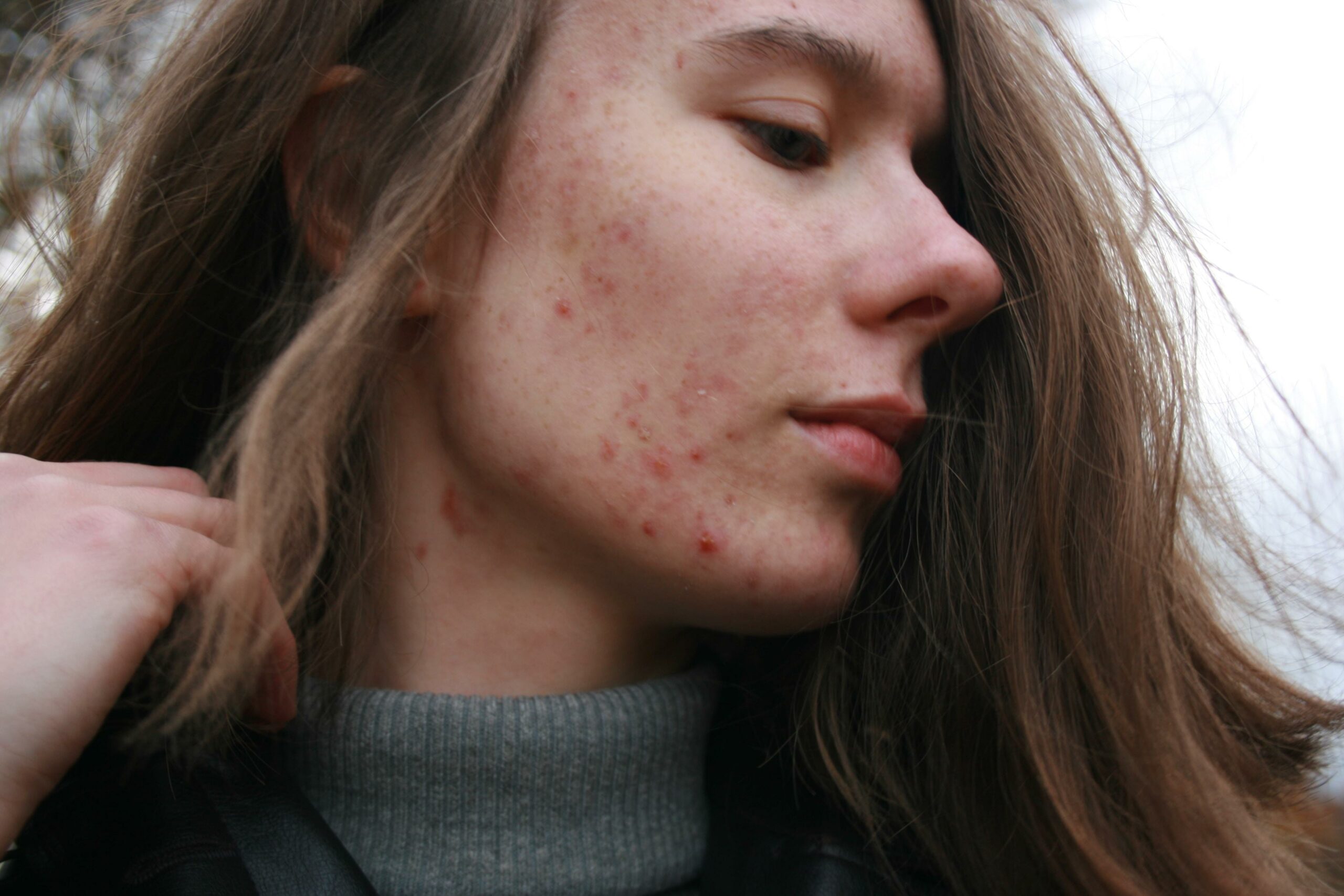In a constant pursuit of flawless skin, those plagued with acne scars often turn to an array of treatments in hopes of achieving transformative results. But with countless options available, it becomes essential to navigate through the sea of information and expert guidance. Look no further, as we bring you a comprehensive guide to effective treatments for acne scars. Unveiling the secrets behind laser therapy, chemical peels, and other dermatological procedures, this article serves as an all-inclusive resource to help you bid farewell to those persistent scars and unlock the path to radiant, blemish-free skin. So, join us as we delve into the world of dermatological solutions and embark on a journey towards self-confidence and improved skin health.

Treatments for Acne Scars
Acne scars can be a frustrating reminder of past breakouts, but they don’t have to be a permanent fixture on your skin. With the right treatments, you can effectively transform your acne scars and enjoy smoother, more radiant skin. In this article, we will explore the various options available to you, providing expert insights on effective treatments for acne scars.
Professional Treatments for Acne Scars:
When it comes to treating acne scars, consulting with a dermatologist is highly recommended. They have the expertise and experience to guide you towards the most effective treatment options. Professional treatments offer advanced solutions that can significantly improve the appearance of acne scars. Let’s take a closer look at some of these treatments:
Laser Therapy: Laser treatments have gained popularity for their ability to effectively treat acne scars. Ablative lasers remove the top layer of skin, stimulating collagen production and promoting the growth of new, healthy skin cells. Non-ablative lasers, on the other hand, target the underlying layers of skin without removing the surface layer. Both types of laser therapy can improve the texture and appearance of acne scars, but ablative lasers may require a longer recovery time.
Microneedling: This minimally invasive procedure involves the use of fine needles to create controlled micro-injuries in the skin. These micro-injuries promote collagen production, which helps to remodel the scar tissue. Microneedling can be combined with serums or platelet-rich plasma (PRP) for added benefits. It is a versatile treatment that can be customized to suit the specific needs of each individual.
Chemical Peels: Chemical peels involve the application of a solution to the skin, which causes it to exfoliate and eventually peel off. This process stimulates collagen production and helps to minimize the appearance of acne scars. Different types of peels, such as alpha-hydroxy acid (AHA) peels and trichloroacetic acid (TCA) peels, are available, and your dermatologist will recommend the most suitable one for your skin type and scar severity.
Dermal Fillers: Injectable dermal fillers can be used to fill in depressed acne scars, providing a smoother and more even skin surface. These fillers contain substances such as hyaluronic acid, which adds volume to the skin and reduces the appearance of scars. The effects are temporary and may require regular maintenance injections, but they can significantly improve the texture of acne-scarred skin.
Topical Treatments for Acne Scars:
In addition to professional treatments, there are also topical products that can help fade discoloration and improve the overall texture of the skin. These products are most effective for mild acne scars and can be used in conjunction with professional treatments for enhanced results. Here are some ingredients to look for in topical treatments:
Salicylic Acid: This beta-hydroxy acid exfoliates the skin, promoting the shedding of dead skin cells and unclogging of pores. It can help fade acne scars and prevent new breakouts.
Azelaic Acid: This ingredient has anti-inflammatory properties and can help reduce the redness and discoloration associated with acne scars. It also helps to normalize the skin’s texture and tone.
Retinoids: Derived from vitamin A, retinoids promote cell turnover and collagen production. They can help fade acne scars and improve the overall texture of the skin.
Home Remedies for Acne Scars:
While professional treatments and topical products are backed by scientific research, there are also some home remedies that have been traditionally used to treat acne scars. However, it’s important to note that their effectiveness is not scientifically proven. Here are a few commonly mentioned home remedies:
Aloe Vera: Known for its soothing properties, aloe vera may provide some benefits for acne scars. It can help reduce inflammation and promote healing. However, its effects on scar improvement may vary from person to person.
Honey: With its antimicrobial properties, honey can help prevent infections and promote healing. It may also help fade acne scars over time. Keep in mind that honey should not be used on open or active acne lesions, as it can worsen the condition.
Lemon Juice: Lemon juice has natural bleaching properties and can help lighten acne scars. However, it should be used with caution, as it can also cause skin irritation and sensitivity to sunlight.
It is important to approach home remedies with caution and not rely solely on them for treating acne scars. If you are considering using a home remedy, it’s always best to consult with a dermatologist to ensure its safety and effectiveness.
Some Additional Tips for Treating Acne Scars:
Before undergoing any treatment for acne scars, it is essential to clear acne breakouts first. Treating active acne ensures that you have a clean canvas for scar treatment. Here are a few key points to remember:
Sun Protection: Protecting your skin from the sun is crucial, as exposure to UV rays can darken acne scars and make them more visible. Always apply sunscreen with a minimum SPF of 30 and wear protective clothing when spending time outdoors.
Consult a Dermatologist: Every individual’s skin is unique, and the most effective treatment for your acne scars may vary. Consulting with a dermatologist will help determine the best course of action based on your specific needs and scar type.
In conclusion, there are various treatments available for acne scars, ranging from professional procedures like laser therapy and microneedling to topical products and home remedies. While professional treatments offer advanced solutions, it’s important to choose the right treatment option based on your individual needs. Remember to consult with a dermatologist to determine the most effective treatment plan and take proactive steps to protect your skin from further damage. With the right approach, you can successfully transform your acne scars and achieve smoother, healthier-looking skin.
“Don’t let acne scars overshadow your beauty. With the guidance of a dermatologist and the right treatment, you can regain your confidence and enjoy radiant, scar-free skin.”
Acne scars can be a frustrating and confidence-damaging issue for many individuals. If you’re seeking facts about acne scars, we’ve got you covered. Our comprehensive guide on the topic provides valuable insights into the causes, treatment options, and prevention strategies for acne scars. From exploring the various types of scars to debunking common myths, our resource is designed to empower and educate.
Find out more about the facts surrounding acne scars here. Take control of your skincare journey and discover the information you need to make informed decisions about your skin’s health. Whether you’re looking for tips on reducing the appearance of scars or want to understand the science behind their formation, our guide will equip you with the knowledge to tackle acne scars head-on.
Remember, knowledge is power, and understanding the intricacies of acne scars is the first step towards achieving clearer, smoother skin. Don’t miss out on this valuable resource—click here to explore the facts about acne scars and embark on your journey towards healthier skin.
FAQ
Question 1: What are the different treatments for acne scars?
Answer 1: The treatments for acne scars vary and can include injections of corticosteroids, chemotherapy medicine known as fluorouracil (5-FU), interferon, laser treatments, surgical treatments such as punch techniques, esthetic dermatology or medi-spa treatments such as microdermabrasion, and home remedies such as black seed oil, rosehip oil, honey, and aloe vera.
Question 2: When are injections of corticosteroids, 5-FU, or interferon used for acne scars?
Answer 2: Injections of corticosteroids, 5-FU, or interferon are often used after surgery to treat raised scars.
Question 3: How effective are laser treatments for acne scars?
Answer 3: Laser treatments can be either ablative or non-ablative and are effective for treating acne scars.
Question 4: What are punch techniques used for in treating acne scars?
Answer 4: Punch techniques are used to treat “ice pick” scars.
Question 5: What is microdermabrasion and how does it help with acne scars?
Answer 5: Microdermabrasion is a cosmetic procedure available at day spas and dermatologists’ offices. It is used to exfoliate the skin and can help improve the appearance of acne scars.
- Crypto Quotes’ Red Flags: Avoid Costly Mistakes - June 30, 2025
- Unlock Inspirational Crypto Quotes: Future Predictions - June 30, 2025
- Famous Bitcoin Quotes: A Deep Dive into Crypto’s History - June 30, 2025
















